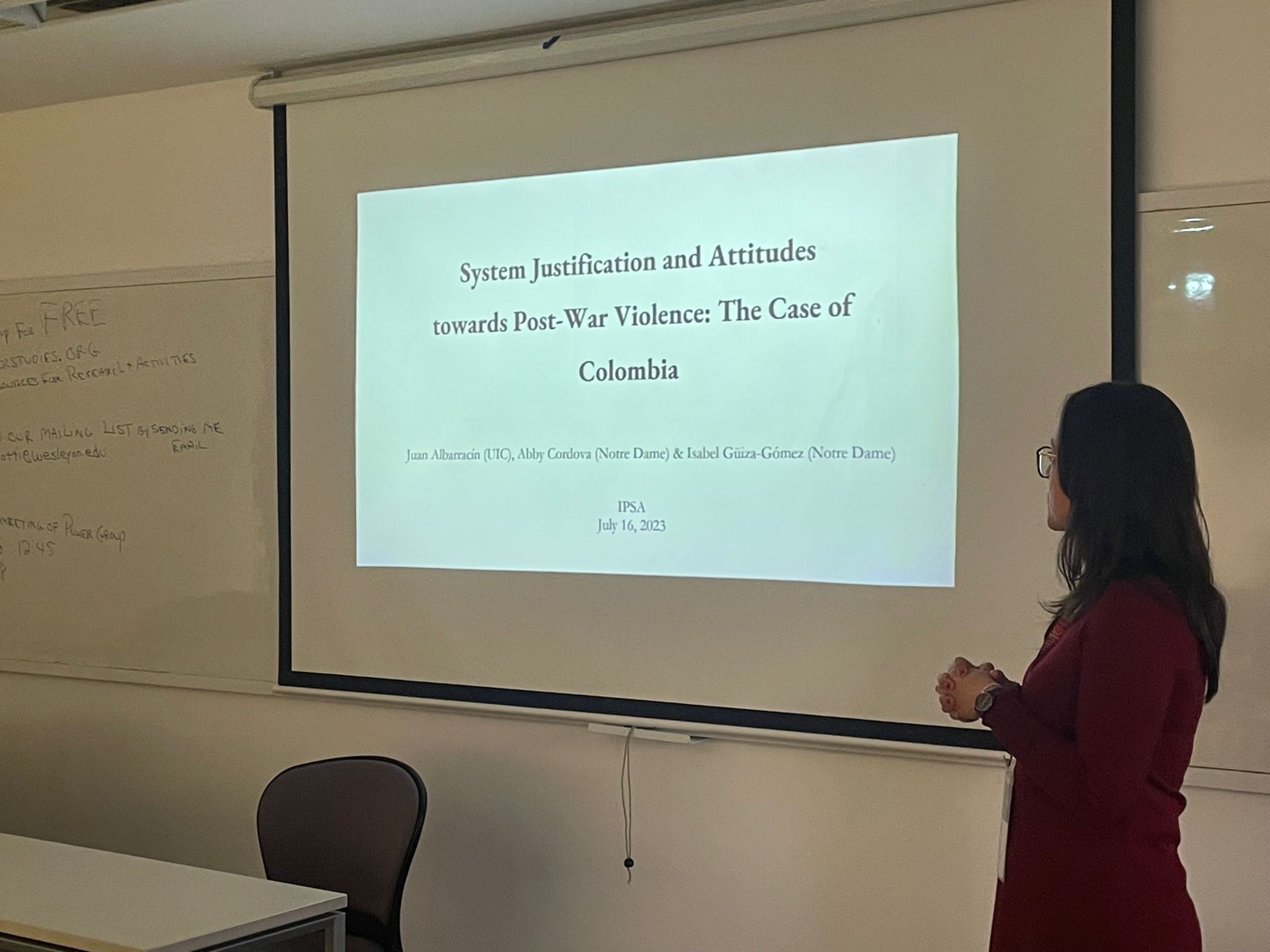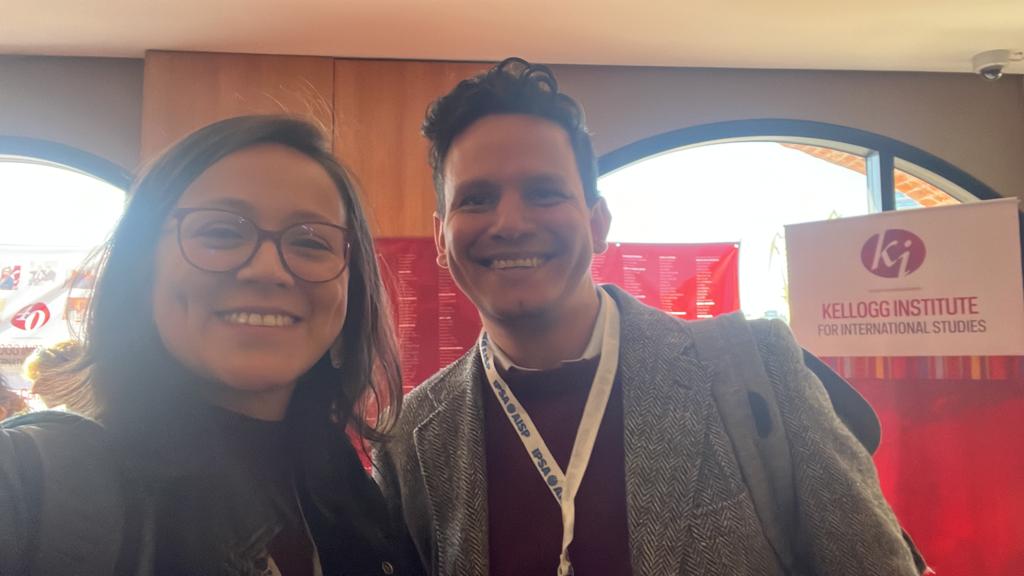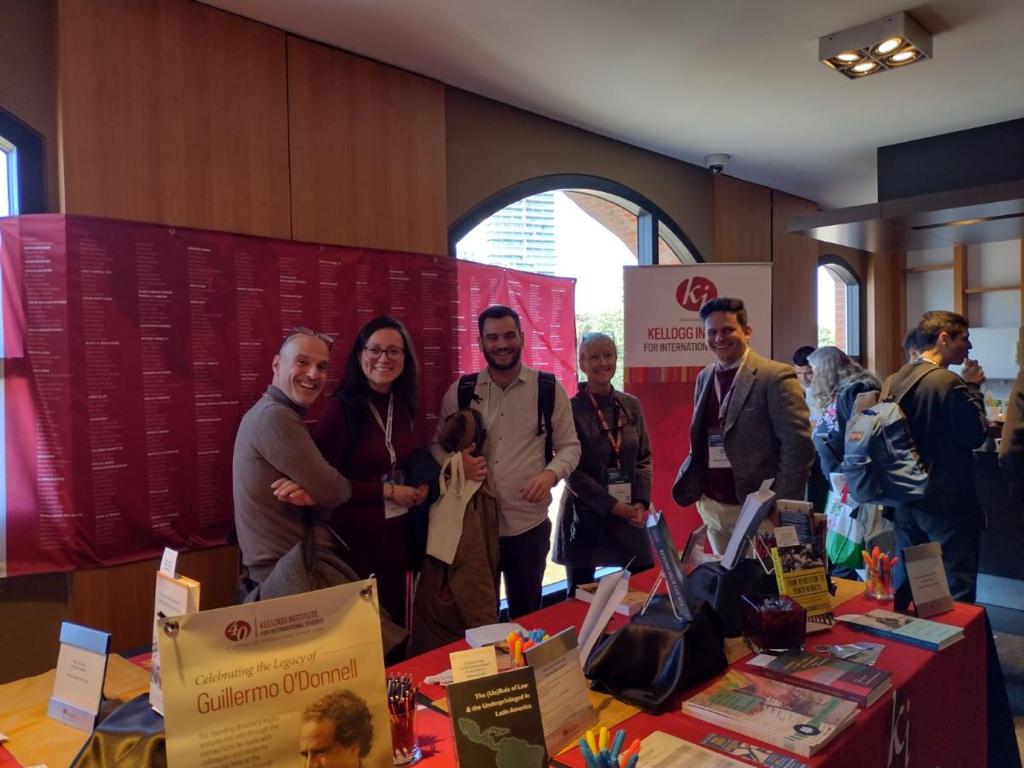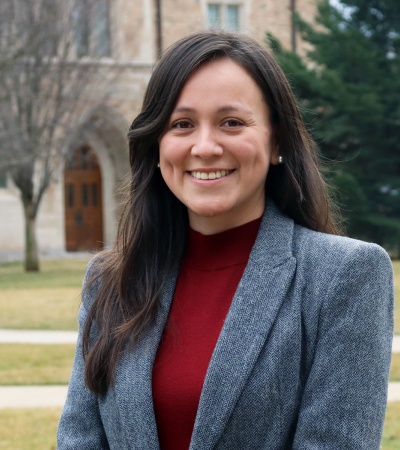27th International Political Science Association (IPSA) Conference; Buenos Aires, Argentina
Kellogg Institute Conference Travel Grants
Conference: 27th International Political Science Association (IPSA) Conference in Buenos Aires, Argentina
July 15 – July 19, 2023
Presentation: “System Justification and Attitudes Towards Post-War Violence: The Case of Colombia”
Report:



On July 16th to 19th 2023, I participated at the 27th International Political Science Association Conference held at Universidad Católica Argentina in Buenos Aires. I served as a discussant for a panel on new frontiers in political economy and presented a co-authored paper (along with Professors Abby Cordova and Juan Albarracín) entitled “System Justification and Attitudes towards Post-War Violence: The Case of Colombia”. While engendering citizen support for peace negotiation and implementation is crucial for peacebuilding—as shown by flourishing scholarship in contexts as diverse as Colombia, Syria, and South Sudan—, so is promoting citizens’ attitudes that reject violence in the aftermath of civil war. Only if citizens denounce post-war violence and strongly pressure political elites to ensure justice to victims, post-conflict societies can increase their chances of building sustainable peace. Violence in post-war contexts can take different forms, including criminal and political violence against perceived challengers posing a threat to deeprooted social orders. A case in point is the assassination of over 1,000 grassroots leaders (líderes sociales) and over 250 ex-combatants from the Revolutionary Armed Forces of Colombia-People’s Army (FARC-EP) since the signing of the 2016 peace agreement in Colombia. In sharp contrast to theoretical accounts arguing that citizens strongly reject systematic (mass) violence against civilians in post-accord settings, scant condemnation is observed from average Colombians despite increasing lethal violence against perceived local challengers who perform as peacebuilders in the post-accord era. Why do lay citizens disregard lethal violence against grassroots actors invested in peacebuilding programs after the signing of a comprehensive peace agreement?
Our research project seeks to explain citizens’ attitudes toward post-war violence against actors playing key roles in peacebuilding and development. Drawing upon System Justification Theory, we argue that disregard for violence towards ex-combatants and grassroots leaders responds to citizens’ motives to defend existing socio-political orders. We contend that former guerrilla members and grassroots leaders are marked by a subversive stigma, which can be traced back to wartime strategies and has branded redistributive demands and certain forms of contentious mobilization as system de-stabilizing. Exposure to groups bearing this stigma heightens threat perceptions that activates system justification motivations to defend the status quo, particularly in the context of comprehensive peace agreements, which promise changes to existing orders and empower these actors politically to play central roles in peacebuilding and development. Theoretically, our paper innovates by adapting an important theoretical framework of political psychology to the study of attitudes towards post-conflict violence, enlarging existing explanations based on exposure to violence, ingroup and outgroup dynamics, and elite cues.
Theoretically, our paper innovates by adapting an important theoretical framework of political psychology to the study of attitudes towards post-conflict violence, enlarging existing explanations based on exposure to violence, ingroup and outgroup dynamics, and elite cues. Empirically, we innovatively employ a two-staged research design that combines qualitative and quantitative survey methods. While our assumptions of the existence of a subversive stigma are grounded in existing research and evidence from mass media, we use an initial survey that includes qualitative elements to explore existing perceptions about insurgent ex-combatants and grassroots leaders. In particular, the initial survey will help us establish the existence of the subversive stigma and the profiles citizens find more threatening, and how they correlate with system justification attitudes and disregard for postwar violence. This information, in turn, informs the conjoint experiment that causally identifies the effect of subversive stigma—measured through perceived “system destabilizing” features—on disregard for violence towards grassroots peacebuilders.
Preliminary results were presented at IPSA where we benefited from insightful feedback on the theoretical and empirical components, which will help us sharpen the survey experiment to be fielded in the Fall 2023.






